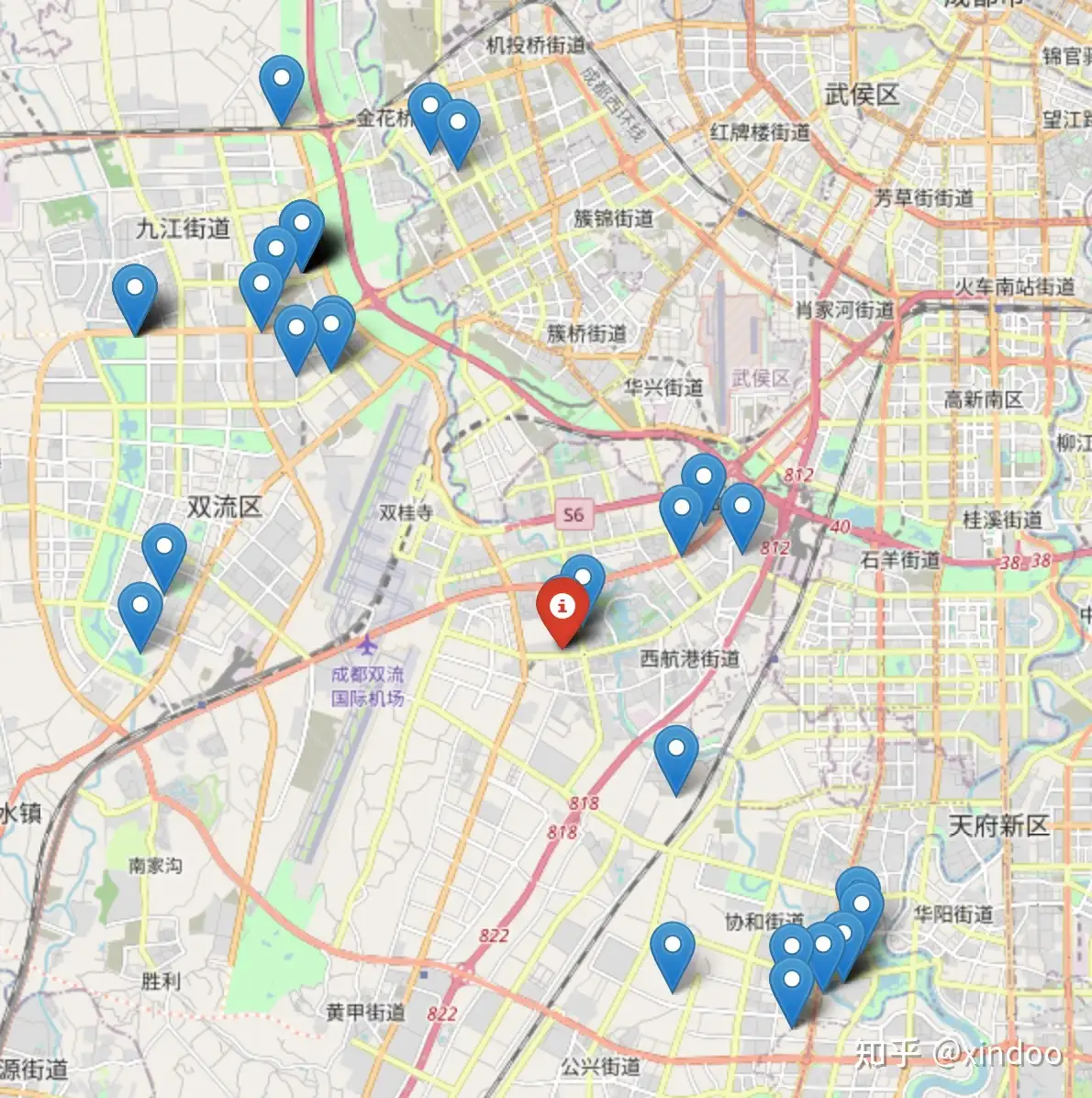A.Yaroslav and Permutations
题意:
n个元素的数组,每个元素不超过1000,可以交换相邻两个元素,问是否可以在有限次的操作之后使得相邻两个元素的值不相同。
#include <stdio.h>
#include <string.h>
int cnt[1005];
int main()
{
int n, a;
while (scanf("%d", &n) != EOF)
{
memset(cnt, 0, sizeof(cnt));
for (int i = 0; i < n; i++)
{
scanf("%d",&a);
cnt[a]++;
}
int m = -1;
for (int i = 0; i <= 1000;i++)
{
if (cnt[i] > m)
m = cnt[i];
}
if (n%2 == 0)
{
if (m > (n/2))
puts("NO");
else
puts("YES");
}
else
{
if (m > (n/2+1))
puts("NO");
else
puts("YES");
}
}
return 0;
}
B.Yaroslav and Two Strings(转载 原文地址)
对于两个字符串ch1和ch2,开四个数组a[i],b[i],c[i],d[i]分别表示 所有的情况数 、ch1[i]<=ch2[i]的情况数、ch1[i]>=ch2[i]的情况数、ch1[i]==ch2[i]的情况数,那么根据容斥原理,有ans = ∏a[i] - ∏b[i] - ∏c[i] + ∏d[i]。
代码
#include <cstdio>
#include <cstring>
#include <iostream>
#include <algorithm>
#include <vector>
#include <set>
#include <map>
#include <cmath>
#include <queue>
using namespace std;
template <class T> void checkmin(T &t,T x) {if(x < t) t = x;}
template <class T> void checkmax(T &t,T x) {if(x > t) t = x;}
template <class T> void _checkmin(T &t,T x) {if(t==-1) t = x; if(x < t) t = x;}
template <class T> void _checkmax(T &t,T x) {if(t==-1) t = x; if(x > t) t = x;}
typedef pair <int,int> PII;
typedef pair <double,double> PDD;
typedef long long ll;
#define foreach(it,v) for(__typeof((v).begin()) it = (v).begin(); it != (v).end ; it ++)
#define MOD 1000000007
int n ;
ll a[101000] , b[101000] , c[101000] , d[101000];
char ch1[101000] , ch2[101000];
void gcd(ll a , ll b , ll &d , ll &x , ll &y) {
if(!b) {d = a; x = 1; y = 0;}
else { gcd(b , a%b,d,y , x); y -= x * (a/b); }
}
ll inv(ll a , ll n) {
ll d , x , y;
gcd(a , n , d, x , y);
return d == 1 ? (x+n)%n : -1;
}
void debug() {
for(int i=0;i<n;i++) cout << a[i] << " ";
cout << endl;
for(int i=0;i<n;i++) cout << b[i] << " ";
cout << endl;
for(int i=0;i<n;i++) cout << c[i] << " ";
cout << endl;
for(int i=0;i<n;i++) cout << d[i] << " ";
cout << endl;
}
int main() {
cin >> n;
scanf("%s%s",ch1,ch2);
for(int i=0;i<n;i++) {
if(ch1[i] == '?' && ch2[i] == '?') { a[i] = b[i] = 55;c[i] = 10; d[i] = 100; }
else if(ch1[i] == '?') { a[i] = ch2[i] - '0'+1; b[i] = 11-a[i]; c[i] = 1; d[i] = 10; }
else if(ch2[i] == '?') { b[i] = ch1[i] - '0'+1; a[i] = 11-b[i]; c[i] = 1; d[i] = 10; }
else {
if(ch1[i] <= ch2[i]) a[i] = 1;
if(ch1[i] >= ch2[i]) b[i] = 1;
if(ch1[i] == ch2[i]) c[i] = 1;
d[i] = 1;
}
}
ll a1 = 1 , a2 = 1 , a3 = 1 , a4 = 1;
for(int i=0;i<n;i++) {
a1 *= a[i]; a1 %= MOD;
a2 *= b[i]; a2 %= MOD;
a3 *= c[i]; a3 %= MOD;
a4 *= d[i]; a4 %= MOD;
}
ll ans = (a4-a1-a2+a3) % MOD;
if(ans < 0) ans += MOD;
cout << ans << endl;
//debug();
return 0;
}
C.Greg and Array
题意:
一个数组n个数,然后又m组操作,每组操作是将从l到r 的每个元素值加v,然后是k组操作,每组的意思是执行第x、x+1……y组操作,然后输出数组元素。
思路:
对于区间修改的问题,毫无疑问是用线段树,但这里有两个线段树,不过我们在这里只对数组建树,不对操作次数建树,用lazy的思想,我们可以更简单的知道那组操作执行了多少次,然后再更新线段树,正好更新的val值是该操作的原来的v乘以操作次数。
代码:
#include <stdio.h>
#include <string.h>
typedef __int64 ll;
const ll maxn = 100005;
ll a[maxn];
struct node
{
ll l, r, m;
ll sum, mark;
}tree[maxn<<2];
ll cnt[maxn];
struct operation
{
ll l, r, v;
}op[maxn];
void build(ll l, ll r, ll o)
{
tree[o].l = l;
tree[o].r = r;
ll m = (l+r)>>1;
tree[o].m = m;
tree[o].mark = 0;
if (l == r)
{
tree[o].sum = a[l];
return;
}
build(l, m, o<<1);
build(m+1, r, (o<<1)+1);
tree[o].sum = tree[o<<1].sum + tree[(o<<1)+1].sum;
}
void update(ll l, ll r, ll v, ll o)
{
if (tree[o].l == l && tree[o].r == r)
{
tree[o].mark += v;
return;
}
tree[o].sum += (ll)(r-l+1)*v;
if (tree[o].m >= r)
update(l, r, v, o<<1);
else if (l > tree[o].m)
update(l, r, v, (o<<1)+1);
else
{
update(l, tree[o].m, v, o<<1);
update(tree[o].m+1, r, v, (o<<1)+1);
}
}
ll query(ll l, ll r, ll o)
{
if (tree[o].l == l && tree[o].r == r)
return tree[o].sum + tree[o].mark*(r-l+1);
if (tree[o].mark != 0)
{
tree[o<<1].mark += tree[o].mark;
tree[(o<<1)+1].mark += tree[o].mark;
tree[o].sum += (ll)(tree[o].r -tree[o].l +1)*tree[o].mark;
tree[o].mark = 0;
}
if (tree[o].m >= r)
return query(l, r, o<<1);
else if (tree[o].m <l)
return query(l, r, (o<<1)+1);
else
return query(l, tree[o].m, o<<1) + query(tree[o].m+1, r, (o<<1)+1);
}
int main()
{
ll n, m, k, l, r, x;
while (scanf("%I64d%I64d%I64d",&n,&m,&k) != EOF)
{
for(ll i = 1; i <= n; i++)
scanf("%I64d",&a[i]);
build(1, n, 1);
for (ll i = 1; i <= m; i++)
scanf("%I64d %I64d %I64d",&op[i].l, &op[i].r, &op[i].v);
memset(cnt, 0, sizeof(cnt));
for (ll i = 1; i <= k; i++)
{
scanf("%I64d %I64d",&l, &r);
cnt[l] += 1;
cnt[r+1] -= 1;
}
ll sum = 0;
for (ll i = 1; i <= m; i++)
{
sum += cnt[i]; //lazy的思想
update(op[i].l, op[i].r, sum*op[i].v, 1);
}
for (ll i = 1; i < n; i++)
printf("%I64d ",query(i, i, 1));
printf("%I64d\n",query(n, n, 1));
}
return 0;
}
D.Greg and Graph (转载 原文)
在讲这道题之前我先现简要介绍一下Floyd—Warshall算法,方便大家更好的了解这道题。
Floyd—Warshall算法的原理是动态规划。
设D[i][j][k]为从i到j只以1~k中节点为中间结点的最短路径长度,则:
(1)若最短路径经过点k,那么D[i][j][k]=D[i][k][k-1]+D[k][j][k-1]
(2)若最短路径不经过点k,那么D[i][j][k]=D[i][j][k-1]
因此D[i][j][k]=min(D[i][k][k-1]+D[k][j][k-1],D[i][j][k]=D[i][j][k-1]).
如果我们把k放在最外层的循环,那么第三位在实现上可以省去。
这道题可以反着思考,我们考虑从一个点开始一个个添加,那么答案倒着输出就行了。
我们每次加进来的点相当于k,首先需要进行一个双重循环找到k点和所有点之间的最短路径;然后就以k点位判断节点更新之前的k-1个点,时间复杂度降到O(n^3),而暴力解法每次都要进行floyd,时间复杂度为O(n^4);相比之下前述解法考虑到了floyd算法的性质,更好了运用了算法的内质。
#include <cstdio>
#include <cstring>
#include <iostream>
#include <algorithm>
#include <vector>
#include <set>
#include <map>
#include <cmath>
#include <queue>
using namespace std;
template <class T> void checkmin(T &t,T x) {if(x < t) t = x;}
template <class T> void checkmax(T &t,T x) {if(x > t) t = x;}
template <class T> void _checkmin(T &t,T x) {if(t==-1) t = x; if(x < t) t = x;}
template <class T> void _checkmax(T &t,T x) {if(t==-1) t = x; if(x > t) t = x;}
typedef pair <int,int> PII;
typedef pair <double,double> PDD;
typedef long long ll;
#define foreach(it,v) for(__typeof((v).begin()) it = (v).begin(); it != (v).end ; it ++)
int n ;
const int N = 555;
int g[N][N];
ll ans[N];
int a[N];
int main() {
cin >> n;
for(int i=1;i<=n;i++)
for(int j=1;j<=n;j++) cin >> g[i][j];
for(int i=n;i>=1;i--) cin >> a[i];
ans[1] = 0;
for(int i=2;i<=n;i++) {
int aa = a[i];
ans[i] += ans[i-1];
for(int j=1;j<i;j++)
ans[i] += g[a[i]][a[j]] + g[a[j]][a[i]];
for(int j=1;j<i;j++)
for(int k=1;k<i;k++) {
if(g[a[j]][a[i]] > g[a[j]][a[k]]+g[a[k]][a[i]]) {
ans[i] -= g[a[j]][a[i]];
ans[i] += g[a[j]][a[k]]+g[a[k]][a[i]];
g[a[j]][a[i]] = g[a[j]][a[k]]+g[a[k]][a[i]];
}
if(g[a[i]][a[j]] > g[a[i]][a[k]] + g[a[k]][a[j]]) {
ans[i] -= g[a[i]][a[j]];
ans[i] += g[a[i]][a[k]] + g[a[k]][a[j]];
g[a[i]][a[j]] = g[a[i]][a[k]] + g[a[k]][a[j]];
}
}
for(int j=1;j<i;j++)
for(int k=1;k<i;k++) {
if(g[a[j]][a[k]] > g[a[j]][a[i]] + g[a[i]][a[k]]) {
ans[i] -= g[a[j]][a[k]];
ans[i] += g[a[j]][a[i]] + g[a[i]][a[k]];
g[a[j]][a[k]] = g[a[j]][a[i]] + g[a[i]][a[k]];
}
}
}
cout << ans[n];
for(int i=n-1;i>=1;i--) cout << " "<< ans[i];
cout << endl;
return 0;
}



![[翻译]我在谷歌14年学到的21堂课-XINDOO](https://xindoo-1254046096.cos.ap-beijing.myqcloud.com/img/uPic/iShot_2026-01-21_下午11.21.45fewv0C.jpg)



